Get Your Drink On Posted by sasha on Nov 10, 2012 in Uncategorized, Vocabulary
A lot of time is spent talking about food when you’re learning a language, but how about drinks? From morning to night, drinks are just as big a part of our day as food is. Whether you’re out in a restaurant (饭店 – fàn diàn), perusing the coolers of a local corner store (小卖部 – xiǎo mài bù), or kicking it with your dudes (哥们儿 – gē men er) inside a local bar (酒吧 – jiǔ bā), knowing what you want to drink and how to order it are both crucial parts of your life. Thankfully, I’m here to help you out so you don’t need to worry about being thirsty (渴 – kě) and confused in China.
Chinese Names of Drinks
On the signs of many corner stores and shops, you’ll see a Chinese word that basically means “drinks” (饮料 – yǐn liào). So, what exactly will you find on the shelves and in the coolers? Here are some common examples:
- mineral water (矿泉水 – kuàng quán shuǐ)
- ice red tea (冰红茶 – bīng hóng chá)
- green tea (绿茶 – lǜ chá)
- milk tea (奶茶 – nǎi chá)
- Wong Lo Kat herbal tea (王老吉 – wáng lǎo jí)
- fruit juice (果汁 – guǒ zhī)
- coffee (咖啡 – kā fēi)
- milk (牛奶 – niú nǎi)
- soy bean milk (豆浆 – dòu jiāng)
- soda (汽水 – qì shuǐ)
- cola (可乐 – kě lè)
- Sprite (雪碧 – xuě bì)
- Fanta (芬达 – fēn dá)
Alcoholic Drinks
Green tea and soy bean milk are great and all, but how about when you want to toss a few adult beverages back? Drinking is a huge part of Chinese culture, and at least in my experience, knocking back a few beers with locals is a great way to improve your Chinese. Plus, with a little bit of liquid confidence, you’ll be more relaxed and not so worried about whether or not what you’re saying is totally accurate. Hell, I’ve gotten so drunk with Chinese guys before that even they didn’t understand each other! Whenever you see the Chinese character for “alcohol” (酒 – jiǔ), you’ll know that you’ve found some adult refreshments. Here are the Chinese names for the most common booze drinks you’ll find:
- beer (啤酒 – pí jiǔ)
Beer is huge in China. In local noodle restaurants around lunch-time, you’ll see Chinese guys casually throwing back a few bottles while munching and chatting. In the evening, street food stalls serve up BBQ and snacks such as peanuts and green beens, while the sounds of bottles clinking echo throughout the crowd of people sitting on tiny stools. Beer is everywhere you look, and with large bottles costing a mere 3-4 RMB, it’s certainly a budget friendly choice. Here are some of the most common brands of beer:
- Tsingtao (青岛 – qīng dǎo)
- Yanjing (燕京 – yàn jīng)
- Harbin (哈尔滨 – hā’ěr bīn)
- Snow (雪花 – xuě huā)
- Budweiser (百威- bǎi wēi)
- Heineken (喜力 – xǐ lì)
- Carlsberg (嘉士伯 – jiā shì bó)
Ok, moving on to the harder stuff…
- white alcohol (白酒 – bái jiǔ)
- yellow alcohol (黃酒 – huáng jiǔ)
These are the two main types of Chinese liquor. The white stuff is distilled and clear. From migrant workers on the train, to businessmen in important meetings, to the groom and all of his guests at a wedding, bai jiu is a very common sight here in the Middle Kingdom. Cheap brands like Er Guo Tou (二锅头 – Èr guō tóu) go for a few kuai a bottle, while the top-notch stuff such as Maotai (茅台 – máo tái) can go for 2,000 or more. It’s strong stuff, too, with most varieties clocking in somewhere between 35-50% alcohol. When it comes to drinking bai jiu in China, be prepared for constant calls of “Bottoms up!” (干杯 – gān bēi – lit. “dry glass”). As far as the yellow stuff goes, it is fermented and not nearly as strong. It’s commonly used for cooking, but of course people also drink it straight up.
Now, for some foreign influences…
- red wine (红葡萄酒 – hóng pú táo jiǔ)
- white wine (白葡萄酒 – bái pú táo jiǔ)
- cocktail (鸡尾酒 – jī wěi jiǔ)
As China’s economy grows and more and more Chinese people find themselves with disposable income, Western-style drinking is becoming more and more popular. All over Beijing and other big cities, you’ll find imported wine stores full of curious Chinese customers. There are even classes for well-to-do Chinese to learn proper etiquette for wine drinking.
Now, how about the liquors of the world?
- vodka (伏特加酒 – fú tè jiā jiǔ)
- rum (甜酒 – tián jiǔ)
- whiskey (威士忌酒 – wēi shì jì jiǔ)
- gin (杜松子酒 – dù sōng zǐ jiǔ)
- tequila (龙舌兰酒 – lóng shé lán jiǔ)
As far as cocktails go, you’ll find plenty of great options in the mega-cities like Beijing and Shanghai, but don’t expect to find stocked bars and knowledgeable bartenders in smaller cities. Wherever you end up in search of a cocktail, here are some Chinese names to remember:
- Gin and tonic (金汤力 – jīn tāng lì)
- Whiskey coke (威士忌可乐 – wēi shì jì kě lè)
- White Russian (白俄罗斯 – bái è luó sī)
- Martini (马天呢 – mǎ tiān ne)
- Bloody Mary (血腥玛丽 – xuè xīng mǎ lì)
- Mojito (莫吉托 – mò jí tuō)
Offering/Ordering Drinks
Ok, so now you’ve got the names of a bunch of different drinks in Chinese. But what good are they if you don’t know how to offer them to someone or order them yourself? Here are some useful phrases for you:
- What would you like to drink? (你想喝点什么 – nǐ xiǎng hē diǎn shén me)
- Would you like to drink…? (你想喝 … 吗 – nǐ xiǎng hē… ma)
- Would you like to drink … or …? (你想喝 … 还是… – nǐ xiǎng hē… hái shì…)
- I’d like to drink some… (我想喝点… – wǒ xiǎng hē diǎn…)
- Please give me… (请给我… – qǐng gěi wǒ…)
Of course, you’ll need to use the correct measure word when ordering drinks. Here are some examples:
- a bottle (一瓶 – yì píng)
- a glass/cup (一杯 – yì bēi)
- a can (一听 – yì tīng)
- a pot (一壶 – yì hú)
Conversation
Now, take everything you’ve learned in this post and see if you can understand this basic conversation:
A: 你想喝点什么?
B: 我想喝点茶。
A: 你想喝绿茶还是冰红茶?
B: 我想喝冰红茶。你呢?
A: 我想喝一瓶啤酒。
B: 你想和青岛还是燕京?
A: 我想喝燕京。请给我一瓶燕京啤酒。
B: 那我不想喝茶。我们一起喝啤酒吧!
A: 干杯!
B: 干杯!

Build vocabulary, practice pronunciation, and more with Transparent Language Online. Available anytime, anywhere, on any device.
About the Author: sasha
Sasha is an English teacher, writer, photographer, and videographer from the great state of Michigan. Upon graduating from Michigan State University, he moved to China and spent 5+ years living, working, studying, and traveling there. He also studied Indonesian Language & Culture in Bali for a year. He and his wife run the travel blog Grateful Gypsies, and they're currently trying the digital nomad lifestyle across Latin America.



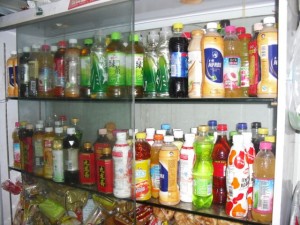
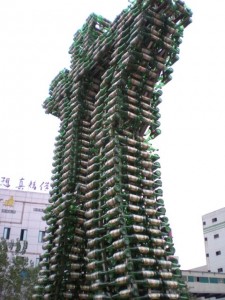
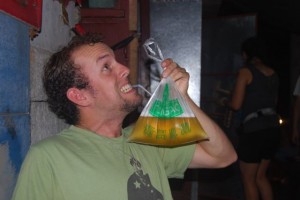

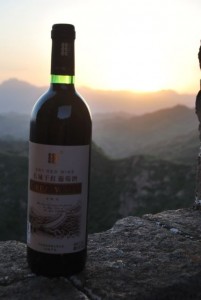
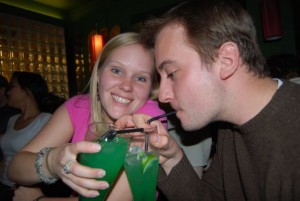

Comments:
ana:
What about in Cantonese? 😉